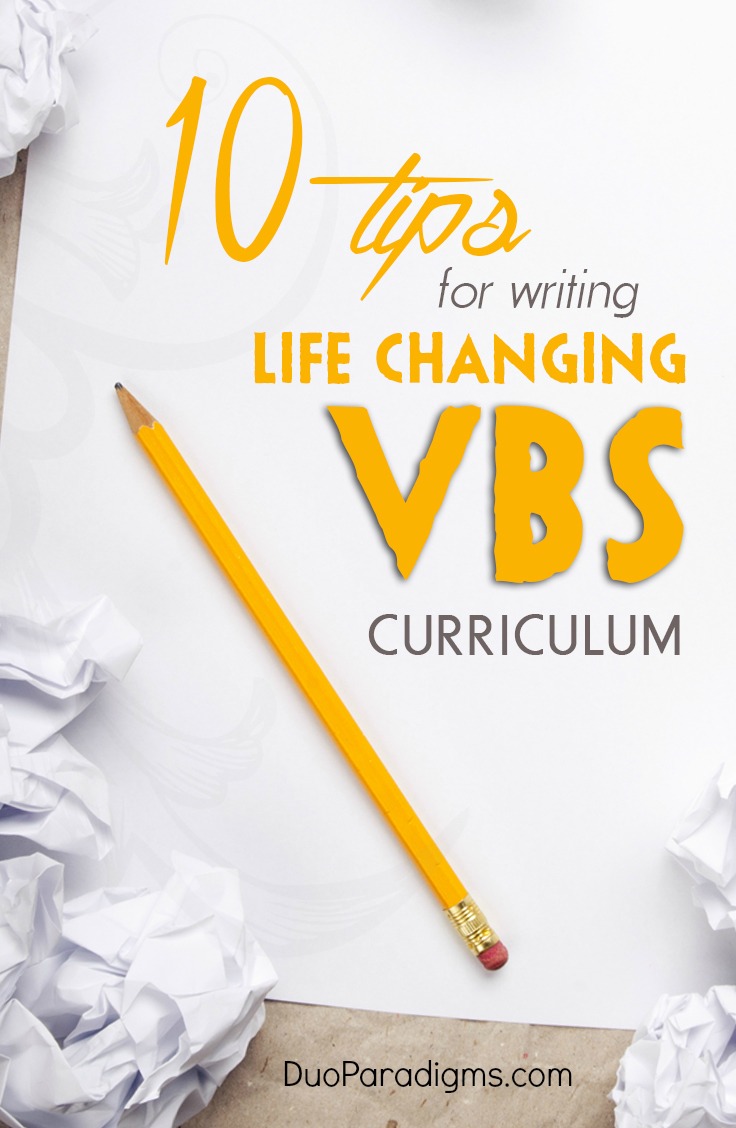Kids ministry season is HERE in DuoParadigms Land. We love this time of year as it gives us a chance to do what we love—serve God by serving His littlest ones!

@ GekaSkr | Deposit Photos
Not long ago I stumbled upon a gem of a quote by the great evangelist D.L Moody. Moody left a large legacy in many areas, but if he had to do his life all over, he would have done one thing differently.
Helping raise up the next generation should be at the top of every leader’s life goal list. One wonderful way to do that is by taking time out of your busy worklife to invest in kids at your church’s VBS, Bible Clubs, or Kids Conferences.
Over the past few weeks I have been writing and rewriting curriculum for our Vacation Bible School, Inner Princess, and the Texas Home School Coalition’s Kids Convention, which we are running this year.
Here are a few things that have helped me immensely during my writing process.

1. Ask God for Divine Assistance.
Don’t go it alone. Effectively sharing the truths of God’s Word with children isn’t an easy task. Go to God and ask Him to give you Divine help as you get His truths down on paper. Ask Him for wisdom, clarity of mind, and effective communication. Pray for wisdom about what to include and what to save for the kids to learn a little later in life. Never forget, God wants your kids to learn about Him even more than you do, so He will be faithful to help you share!
2. Don’t wait to write curriculum until the last minute.
I cannot emphasize this one enough. By getting an early start, you will save yourself stress and you will be able to write without a rapidly approaching deadline hanging over your head. If you wait till the last minute, you will find yourself just throwing concepts together, as your mind will not have ample time to develop ideas fully.
Finished writing for the day? Sleep on that section before you edit it. This gives the ideas a chance to gel in your mind, plus gives your brain a chance to be energized before you start revising.
3. Write when you are distraction free.
You cannot write VBS curriculum while you are catching up on your favorite TV shows. Don’t attempt to write it when you have only fifteen minutes of free time. God doesn’t rush to reveal His Word, so make time for Him to share what you need to convey to the kids. For me, I like to write curriculum in the evenings, when I know that all my responsibilities are finished for the day, so I can relax, think, and write for a few hours.
4. Be CREATIVE!
You are not writing the next technical manual for biophysicists. You are supposed to be writing engaging, kid-friendly, and FUN curriculum for hyperactive, energetic, rambunctious four year olds! Inject creativity, enthusiasm, and fun into your lesson plans. Boring curriculum equals bored kids. Make learning fun and you’ll have happy and engaged kids.
5. Use wording that matches your target audience and age group.
Teaching six year olds? Skip the big words in favor of simple terms that you can explain in one or two syllables. You want to teach about the wonderful truths of sanctification, redemption, atonement, etc? Go for it, but make sure you use easy-to-understand terms, or you will shoot right over the heads of your audience. When in doubt, simplify.
6. Pick one main topic and emphasize, emphasize, EMPHASIZE.
One common mistake people make when writing curriculum is unwittingly throwing the kitchen sink of concepts at their kids. We only have a captive audience for a few days, so we’re tempted to give them Christianity 101 with extra homework on the side. Kids can’t learn this way. Don’t make the VBS experience akin with trying to drink out of a fire hydrant. Pick one main topic and a few parallel truths that always bring you back to the main point.
One of history’s greatest communicators had this to say about reinforcement:
WHACK IT!
7. Use Scripture passages strategically.
The best resource you can use for your curriculum is God’s Word. Include supporting Scripture passages wherever possible. This isn’t just helpful for your kids; it is especially helpful so that your teachers are clear on what God says about the subject. Here’s another tip: don’t just post the references. It’s not uncommon for people to ignore references instead of taking time to look up the passages. Type the scripture inline with the curriculum.
8. Make your curriculum easy to read.
Your work isn’t over once the curriculum is drafted. Publish your curriculum in a layout that is easy to read, with optimal fonts, colors, and whitespace for the eyes and brain to rest and process. Break up large sections of text into short paragraphs. If you’re not a pro at using Adobe InDesign, think about using Microsoft Word, Publisher or even PowerPoint.
9. Include a lesson plan in an outline form.
Your teachers are likely going to be of varied age and teaching experience. Some can just read the lesson and write their own lesson plan. But others will need a little more help. Always include a teaching outline in your curriculum.
10. Get feedback!
It’s been said that feedback is the real breakfast of champions. Resist the urge of thinking you just wrote the greatest VBS curriculum your church has ever seen. You might like it, but face it, you’re hardly impartial. Ask a friend to read over your curriculum to make sure that the concepts make sense, are easy to explain, and creative. Be open to receiving constructive criticism.
Do you have any other tips to share? Tell us about your kids curriculum writing experience! We’d love to hear your feedback!
Our newsletter will help you grow your Christian business or ministry online:
Disclosure: Some of the links on our website are “affiliate links.” This means if you click on the link and purchase an item, we will receive an affiliate commission. We only recommend products or services that we feel will add value to our followers. We are disclosing this in accordance with the Federal Trade Commission’s 16 CFR, Part 255: “Guides Concerning the Use of Endorsements and Testimonials in Advertising.”


